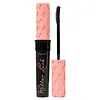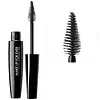What's inside
What's inside
 Key Ingredients
Key Ingredients

 Benefits
Benefits

 Concerns
Concerns

 Ingredients Side-by-side
Ingredients Side-by-side

Water
Skin ConditioningParaffin
PerfumingPolybutene
Cera Alba
EmollientBis-Diglyceryl Polyacyladipate-2
EmollientPalmitic Acid
EmollientStearic Acid
CleansingVp/Eicosene Copolymer
Acacia Senegal Gum
MaskingCopernicia Cerifera Wax
Aminomethyl Propanediol
Buffering1,2-Hexanediol
Skin ConditioningCaprylyl Glycol
EmollientSilica
AbrasiveEuphorbia Cerifera Wax
Hydroxyethylcellulose
Emulsion StabilisingPanthenol
Skin ConditioningButylene Glycol
HumectantHydroxyacetophenone
AntioxidantChlorphenesin
AntimicrobialPentylene Glycol
Skin ConditioningTocopheryl Acetate
AntioxidantAlgin
MaskingSerine
MaskingDisodium Phosphate
BufferingSodium Phosphate
BufferingPolysorbate 60
EmulsifyingIron Oxides
Water, Paraffin, Polybutene, Cera Alba, Bis-Diglyceryl Polyacyladipate-2, Palmitic Acid, Stearic Acid, Vp/Eicosene Copolymer, Acacia Senegal Gum, Copernicia Cerifera Wax, Aminomethyl Propanediol, 1,2-Hexanediol, Caprylyl Glycol, Silica, Euphorbia Cerifera Wax, Hydroxyethylcellulose, Panthenol, Butylene Glycol, Hydroxyacetophenone, Chlorphenesin, Pentylene Glycol, Tocopheryl Acetate, Algin, Serine, Disodium Phosphate, Sodium Phosphate, Polysorbate 60, Iron Oxides
Water
Skin ConditioningParaffin
PerfumingCI 77499
Cosmetic ColorantPolybutene
Cera Alba
EmollientBis-Diglyceryl Polyacyladipate-2
EmollientPalmitic Acid
EmollientStearic Acid
CleansingTriethanolamine
BufferingVp/Eicosene Copolymer
Acacia Senegal Gum
MaskingCopernicia Cerifera Wax
Euphorbia Cerifera Wax
Hydroxyethylcellulose
Emulsion StabilisingSilica
AbrasivePhenoxyethanol
PreservativeCrambe Abyssinica Seed Oil
Skin ConditioningCaprylyl Glycol
EmollientButylene Glycol
HumectantAlgin
MaskingHydrolyzed Rhodophyceae Extract
BHT
AntioxidantSerine
MaskingWater, Paraffin, CI 77499, Polybutene, Cera Alba, Bis-Diglyceryl Polyacyladipate-2, Palmitic Acid, Stearic Acid, Triethanolamine, Vp/Eicosene Copolymer, Acacia Senegal Gum, Copernicia Cerifera Wax, Euphorbia Cerifera Wax, Hydroxyethylcellulose, Silica, Phenoxyethanol, Crambe Abyssinica Seed Oil, Caprylyl Glycol, Butylene Glycol, Algin, Hydrolyzed Rhodophyceae Extract, BHT, Serine
 Reviews
Reviews

Ingredients Explained
These ingredients are found in both products.
Ingredients higher up in an ingredient list are typically present in a larger amount.
Acacia Senegal Gum has skin soothing, thickening, and formulation stabilizing properties. It comes from the Acacia tree that is native to sub-Saharan Africa.
Algin is brown algae. Algae is an informal term for a group of aquatic organisms that can photosynthesize. It is estimated there are at least 30,000 types of Algae.
Algae contains antioxidants. Antioxidants help fight free-radicals. Free-radicals are molecules that may damage your skin cells, such as pollution.
This ingredient is lipid-based synthetic skin-conditioning agent derived from adipic acid and a mixture of fatty acids. It is often called a lanolin substitute.
As an emollient, it helps soften and hydrate the skin. Emollients create a barrier on the skin to trap moisture in.
Due to its fatty acid base, it may not be Malassezia folliculitis safe.
Learn more about Bis-Diglyceryl Polyacyladipate-2Butylene Glycol (or BG) is used within cosmetic products for a few different reasons:
Overall, Butylene Glycol is a safe and well-rounded ingredient that works well with other ingredients.
Though this ingredient works well with most skin types, some people with sensitive skin may experience a reaction such as allergic rashes, closed comedones, or itchiness.
Learn more about Butylene GlycolCaprylyl Glycol is a humectant and emollient, meaning it attracts and preserves moisture.
It is a common ingredient in many products, especially those designed to hydrate skin. The primary benefits are retaining moisture, skin softening, and promoting a healthy skin barrier.
Though Caprylyl Glycol is an alcohol derived from fatty acids, it is not the kind that can dry out skin.
This ingredient is also used as a preservative to extend the life of products. It has slight antimicrobial properties.
Learn more about Caprylyl GlycolCera alba is beeswax, or the wax used by bees to make honeycombs. It is a texture-enhancer and emollient. A study from 2003 found beeswax to be a stronger emollient than ingredients such as petroleum jelly.
As an emollient, beeswax helps hydrate the skin by creating a barrier on top. This barrier traps moisture in.
Emulsifiers help prevent ingredients from separating. This helps create consistent texture.
The structure of beeswax is mainly long-chain alcohols and the esters of fatty acids.
There are three types of beeswax: yellow, white, and absolute. Yellow is pure beeswax taken from the honeycomb. White beeswax is created by filtering or bleaching yellow beeswax. Absolute beeswax is created by treating beeswax with alcohol. Beeswax used in cosmetics are purified.
Beeswax has been used throughout history and even in prehistoric times. Some common uses for beeswax still used today are making candles, as a waterproofing agent, and polish for leather.
Learn more about Cera AlbaCopernicia Cerifera Wax comes from a palm tree native to Brazil; another name for this ingredient is Carnauba Wax.
This ingredient is used to thicken texture and also leaves behind a film when applied.
Fun fact: This wax has the highest melting point of all natural waxes and low solubility.
Learn more about Copernicia Cerifera WaxHydroxyethylcellulose is used to improve the texture of products. It is created from a chemical reaction involving ethylene oxide and alkali-cellulose. Cellulose is a sugar found in plant cell walls and help give plants structure.
This ingredient helps stabilize products by preventing ingredients from separating. It can also help thicken the texture of a product.
This ingredient can also be found in pill medicines to help our bodies digest other ingredients.
Learn more about HydroxyethylcellulosePalmitic Acid is a fatty acid naturally found in our skin and in many plant and animal sources. In cosmetics, it is usually derived from palm oil. It serves many purposes in skincare, acting as a cleanser, emollient, and emulsifier.
As an emollient, palmitic acid helps soften and smooth the skin by preventing water loss. In cleansers, it helps remove oil and dirt while creating foam.
Its emulsifying properties help stabilize products by keeping water and oil-based ingredients from separating.
This may not be suitable for fungal acne-prone skin, as fatty acids like this can sometimes trigger breakouts in sensitive individuals.
Learn more about Palmitic AcidParaffin is a solid created from petroleum. The term 'paraffin' can also refer to either
petroleum jelly or mineral oil.
It has natural occlusive properties which can worsen oily skin. Due to its petrolatum base, this ingredient is not fungal-acne safe.
Polybutene is used to help control the viscosity of a product. This just means it helps adjusts the texture.
It is a polymer and does not get absorbed into the skin due to its large size.
Studies found this ingredient did not irritate skin in concentrations below 15%.
Learn more about PolybuteneSerine is an amino acid naturally found in our body. Our bodies use amino acids to create protein.
Amino-acids help give keep our skin hydrated. They play an important role in the skin barrier, which keeps the skin plump and firm.
Serine is a non-essential amino acid, meaning we don't need to obtain it from eating foods.
Learn more about SerineSilica, also known as silicon dioxide, is a naturally occurring mineral. It is used as a fine, spherical, and porous powder in cosmetics.
Though it has exfoliant properties, the function of silica varies depending on the product.
The unique structure of silica enhances the spreadability and adds smoothness, making it a great texture enhancer.
It is also used as an active carrier, emulsifier, and mattifier due to its ability to absorb excess oil.
In some products, tiny microneedles called spicules are made from silica or hydrolyzed sponge. When you rub them in, they lightly polish away dead skin layers and enhance the penetration of active ingredients.
Learn more about SilicaStearic Acid is a fatty acid. It is an emollient, emulsifier, and texture enhancer.
As an emollient, stearic acid helps soften skin. It aids the skin's protective barrier by preventing water loss. It also provides a gentle cleansing effect without stripping away natural oils.
Stearic acid may also be used to enhance the texture of products. It can add volume and stabilize ingredients such as water and oil. This can help water and oil ingredients from separating.
Sources of stearic acid include animal or vegetable fats/oils such as coconut or shea. It can be naturally found in butter, cocoa butter, shea butter, vegetable fats, and animal tallow.
This ingredient may not be Malassezia folliculitis, or fungal-acne safe.
Learn more about Stearic AcidWe don't have a description for Vp/Eicosene Copolymer yet.
Water. It's the most common cosmetic ingredient of all. You'll usually see it at the top of ingredient lists, meaning that it makes up the largest part of the product.
So why is it so popular? Water most often acts as a solvent - this means that it helps dissolve other ingredients into the formulation.
You'll also recognize water as that liquid we all need to stay alive. If you see this, drink a glass of water. Stay hydrated!
Learn more about WaterEuphorbia Cerifera wax comes from a shrub in Northern Mexico. It is used to stabilize formulations and has emollient properties.
Emollients form a thin layer on top of skin to prevent water from evaporating, keeping skin and lips hydrated.
According to a manufacturer, this wax can range from a yellow/brown color to translucent.
Learn more about Euphorbia Cerifera Wax